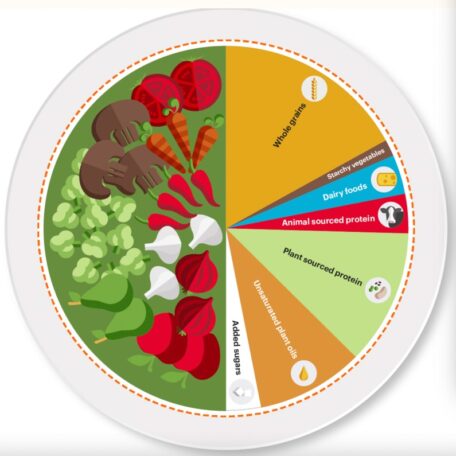You’ve heard of climate change, global warming, and about how greenhouse gas emissions are causing it all, but did you know that what you eat has an impact on all of this? Did you know that there is such a thing as sustainable eating, and that what you eat everyday can either help or hinder the cause of reducing global warming? In this article we’ll look at what sustainable eating is, and how to incorporate it into your everyday diet.
What is sustainable eating?
Sustainable eating is a way of choosing and consuming foods which enhance the health of people and the planet. In other words, it means consuming foods with do not cause a high amount of greenhouse gas emissions to produce, and can be continuously produced for years to come, without worsening the current state of the environment. Often, food that is good for the planet is also good for our bodies, as this type of diet is rich in fruit and veg and grains, low in animal products, and low in highly processed foods.
How does choosing sustainable eating help the planet?
Meat and dairy require large amounts of land and resources (feed, water) to produce, so by constantly producing large amounts of them, we use up a lot of resources that could otherwise be used for other purposes. What’s more, animal products produce a high level of emissions, being responsible for 70% of food related emissions. This is both due to the amount of resources they require and the emissions that are produced in growing the grain required for animals to eat, but also in the methane that is produced by ruminant animals like cows, sheep and goats. These types of animals have microbes in their gut which produce methane when the grain is fermented in their guts, and then belched out. Consequently, the methane goes up into the atmosphere and becomes trapped, creating the ‘greenhouse’ effect. This is not the only effect of animal agriculture however, as it is also uses up a lot of land which could be used for forests and vegetation.
Currently, around 35% of land that is habitable globally is being used for animal agriculture. So, when people choose to eat a large number of meat and animal products in their everyday diets, they maintain the high demand for animal products, and force the continued use of this land for animal agriculture. If the highest income nations in the world (which are coincidentally the greatest consumers of meat and animal products) switched to a more plant based, sustainable diet, they would free up hundreds of millions of hectares of land and cut their emissions from agriculture by 61%. If they then worked together to reforest these areas by planting trees and restored the soil to good health, billions of tonnes of carbon dioxide could be pulled from the atmosphere and stored in the soil (via carbon sequestration), reducing the greenhouse effect. It’s pretty clear then, that reducing the amount of animal foods produced would be a healthy thing for the planet. So what can you do to help?
In 2019, a global commission came together to do comprehensive research and present their findings on the best diet for planetary and human health, called it the ‘EAT-Lancet’ diet. This diet focuses on plants, with much smaller amounts of meat and dairy. It also encourages eating in moderation as per your body’s energy needs, as well as reducing waste. The key elements of the diet are summarised in steps below:
- Eat a wide variety of fruits and vegetables, wholegrains, and plant sourced protein,
As per the diagram below, half of your plate should be made up of non-starchy vegetables and fruit, with smaller portions of your plate being made up of wholegrains and plant sourced protein (eg. legumes, tofu, beans), with even smaller amounts of your plate being made up of animal sourced protein and dairy foods.
2. Eat in moderation and in line with your body’s energy needs. Do not consume more food than you need.
3. Reduce waste by only buying what you need and saving leftovers for lunches or other meals.
Eating in this way is not only much more sustainable for the planet, but also beneficial for your own health, due to the wide range of vitamins and minerals, the high fibre content, and the low saturated fat content.
Therefore, if you want to help contribute to a more sustainable planet whilst also improving your health, consider adopting a diet richer in fruits, vegetables, wholegrains, and plant proteins, and lower in meat and animal products.






